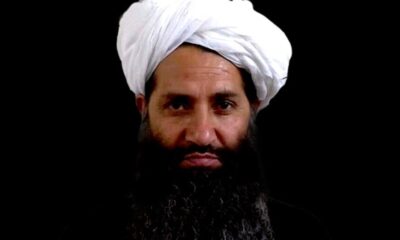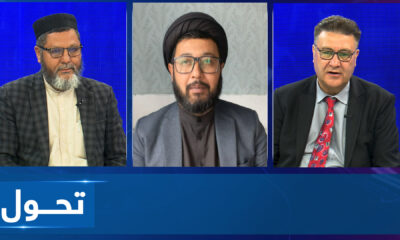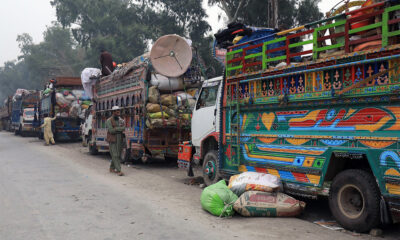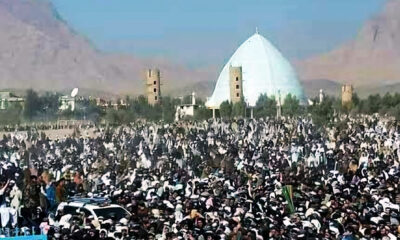Latest News
Attacks on healthcare sector a matter of grave concern: UN Report
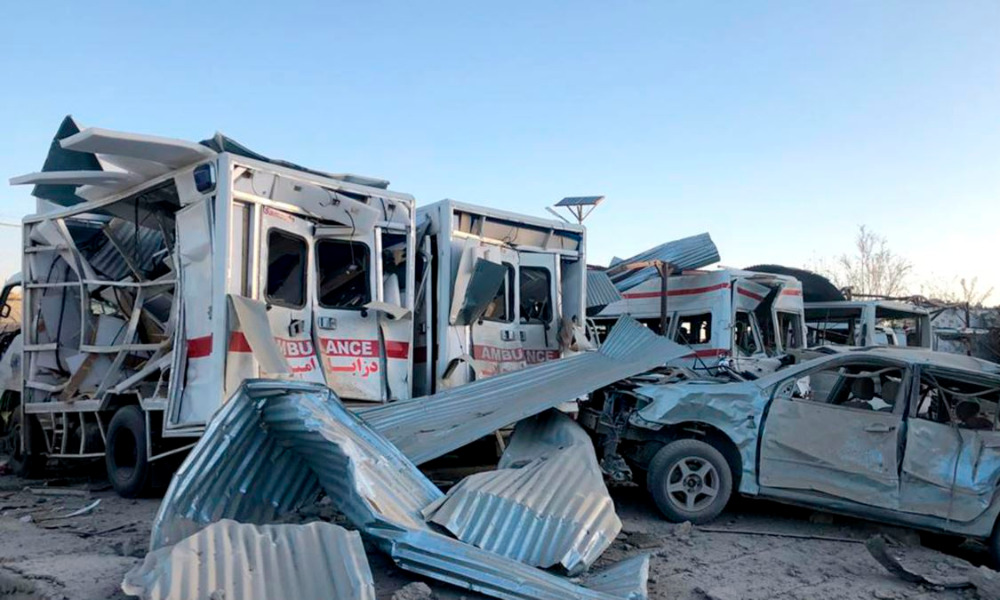
The United Nations Assistance Mission in Afghanistan (UNAMA) Sunday issued a report stating it was gravely concerned by recent deliberate attacks on healthcare personnel and facilities, especially in the context of the COVID-19 pandemic.
The new special report, released by the UN Assistance Mission in Afghanistan (UNAMA), details findings of its monitoring of all incidents of the armed conflict affecting healthcare from 11 March, the date the World Health Organization declared the outbreak of COVID-19 a global pandemic, to 23 May, the start of a three-day ceasefire between the Taliban and the Afghan government.
The report titled “Attacks on Healthcare during the COVID-19 pandemic,” documents the harm to healthcare workers, damage to healthcare facilities and other ways in which parties to the conflict have “interfered” with necessary healthcare, both as a result of targeted attacks as well as from ongoing fighting, a statement issued Sunday by UNAMA read.
UN in #Afghanistan gravely concerned by recent deliberate attacks on healthcare personnel and facilities, especially in the context of the #COVID19 pandemic. Read more: https://t.co/FczYFcuqAw. pic.twitter.com/aagFkd7SZC
— UNAMA News (@UNAMAnews) June 21, 2020
According to UNAMA, they had already raised concerns about such incidents in their report for the first quarter of 2020.
“Since then, the situation deteriorated: the Taliban continued abducting healthcare workers and attacked a pharmacy; the Afghan national security forces carried out deliberate acts of violence and intimidation affecting a healthcare facility, workers and the delivery of medical supplies; and unknown gunmen perpetrated an attack on a maternity ward in a hospital in Kabul, resulting in dozens of civilian casualties,” the statement read.
Deborah Lyons, the Secretary-General’s Special Representative for Afghanistan and head of UNAMA, meanwhile said: “At a time when an urgent humanitarian response was required to protect every life in Afghanistan, both the Taliban and Afghan national security forces carried out deliberate acts of violence that undermined healthcare operations.”
“There is no excuse for such actions; the safety and well-being of the civilian population must be a priority,” she said.
When an urgent humanitarian response was required to protect every life in #Afghanistan during #COVID19, deliberate acts of violence undermined healthcare operations; civilian population must be a priority. – @DeborahLyonsUN in new UN report. More: https://t.co/FczYFcuqAw pic.twitter.com/gnQebnZ45y
— UNAMA News (@UNAMAnews) June 21, 2020
The report documents 15 incidents affecting healthcare provision, where 12 were deliberate attacks, and the remaining incidents involved incidental harm.
UNAMA said most of these healthcare-related incidents – eight of the targeted attacks and two of the incidents with incidental harm – were attributed to the Taliban but added Afghan national security forces were responsible for three targeted attacks against healthcare.
“One instance of incidental harm to healthcare occurred in the context of clashes between Afghan national security forces and the Taliban. The most abhorrent attack, on a maternity ward in a Kabul hospital, remains unattributed,” the statement read.
The report emphasized that deliberate acts of violence against healthcare facilities, including hospitals and related personnel, are prohibited under international humanitarian law and constitute war crimes.
“Perpetrating targeted attacks on healthcare during the COVID-19 pandemic, a time when health resources are already stretched and of critical importance to the civilian population, is particularly reprehensible,” said Fiona Frazer, UNAMA Chief of Human Rights.
The report also stated that the harm caused by attacks on healthcare, particularly during a health pandemic, extends well beyond the direct victims of those incidents and stressed that even with ongoing conflict, the people of Afghanistan have the right to the highest attainable standard of physical and mental health under international human rights law.
The UN stated that it condemns all deliberate attacks, threats, abductions, and other intentional acts against healthcare facilities and personnel, as outlined in the report.
“In a situation in which the entire population in Afghanistan is at risk from COVID-19, there can be no greater priority than ensuring that health services can continue to operate without interference, interruption, and with sufficient resources,” the organization stated.
The UN also reiterated calls to all parties to heed the Secretary-General’s call for a global ceasefire so all attention and resources can be directed toward fighting the COVID-19 pandemic and prevent further harm being caused to the people of Afghanistan.
Latest News
Islamic Emirate faces a wave of negative propaganda: Supreme leader
In his speech, Akhundzada emphasized on avoiding division and disunity, stating that the survival of the system lies in unity and solidarity.
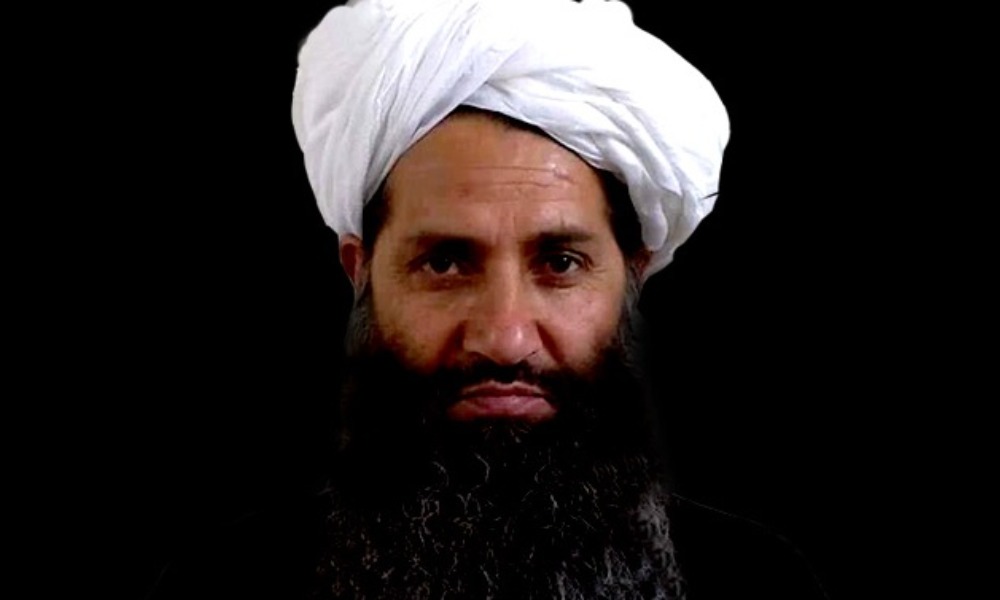
Mawlawi Hibatullah Akhundzada, supreme leader of the Islamic Emirate of Afghanistan (IEA), led Eid-ul-Fitr prayer in Kandahar province on Sunday, attended by thousands of people.
In his speech, Akhundzada emphasized on avoiding division and disunity, stating that the survival of the system lies in unity and solidarity.
He added that the Islamic Emirate is facing a wave of negative propaganda, and its enemies are using these tactics to incite war and conflict in the country once again.
He warned that division would lead to the failure of Muslims and the collapse of systems.
The leader of the Islamic Emirate further mentioned that they sacrificed their lives for 20 years to achieve victory in jihad, and protecting this system requires even more sacrifices.
He called on the people, the forces of the Islamic Emirate, and officials to obey the leadership’s orders, emphasizing that the absence of leadership in the past led to civil wars, which must not be repeated.
Latest News
Pakistan finalizes plans to detain and deport Afghans as deadline nears
Pakistan has granted Afghan migrants, both undocumented and those holding ACC cards, a deadline of March 31 to voluntarily leave the country.
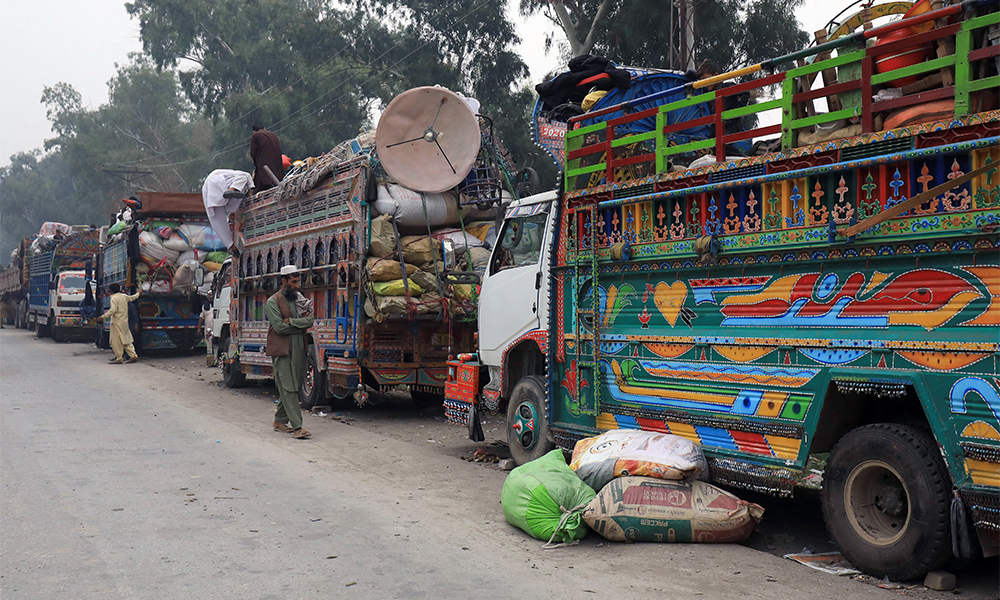
Officials in Pakistan have completed arrangements to detain and expel Afghan citizens following the March 31 deadline for their voluntary return to Afghanistan. This move is part of the country’s plan to address the growing concerns regarding the status of Afghan migrants in Pakistan.
A high-level meeting on Friday, chaired by Interior Minister Mohsin Naqvi, reviewed the measures to repatriate Afghan Citizen Card (ACC) holders. This meeting focused on ensuring the effective execution of the government’s deadline and the logistics surrounding the return process.
Despite requests from the Afghan government and human rights organizations, Pakistani authorities have firmly rejected extending the deadline for the return of ACC holders. The Pakistani government had initially set the deadline for the end of March, and the expulsion process will move forward as planned.
Mohsin Naqvi also revealed that Talal Chaudhry, the State Minister for Interior, would travel to the provinces to assess and address any challenges and potential issues in the process of Afghan migrants’ return.
Meanwhile, Pakistani security forces have detained at least 932 Afghan migrants in Rawalpindi, as the deadline for the expulsion of Afghan migrants with ACC cards approaches.
Human rights organizations have strongly condemned Pakistan’s recent decision to expel Afghan refugees, labeling it a violation of international law and a potential humanitarian crisis. They argue that many of these refugees, including human rights defenders, political activists, and victims of gender-based violence, fled Afghanistan to escape persecution and are now at risk of facing harm if deported.
The Human Rights Commission of Pakistan (HRCP) has expressed deep concern over the government’s ultimatum for undocumented immigrants to leave by March 31, warning that this could lead to a humanitarian disaster. They highlight that such forced repatriation violates international customary law and could adversely affect vulnerable groups, including women, children, the elderly, and individuals with disabilities.
Amnesty International has called on Pakistan to halt the detentions, deportations, and harassment of Afghan refugees, emphasizing that these actions violate the principle of non-refoulement, which prohibits returning individuals to places where they face risks of persecution. They stress that deporting Afghan refugees, especially women and girls, could deny them access to safety, education, and livelihoods.
Pakistan has granted Afghan migrants, both undocumented and those holding ACC cards, a deadline of March 31 to voluntarily leave the country.
However, Pakistani officials confirmed that Afghan migrants holding “PoR” cards are not at risk of being expelled until June 30.
Meanwhile, the International Organization for Migration (IOM) reported a sharp decline in Afghan returns and deportations during the first half of March. Between March 1 and 15, returns dropped by 67 per cent, while deportations fell by 50 per cent compared to the previous reporting period (February 16-28).
Latest News
Eid prayer led by IEA leader in Kandahar: Mujahid
Abdul Salam Hanafi, the Deputy Prime Minister for Administrative Affairs, called on opposition groups to return to Afghanistan and participate in the country’s reconstruction.
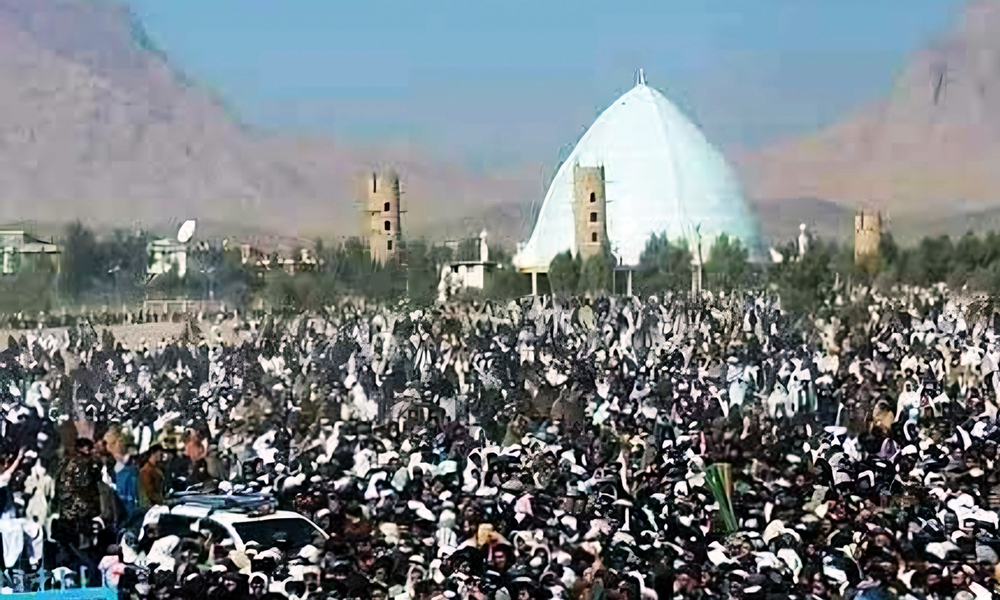
Zabihullah Mujahid, the spokesperson for the Islamic Emirate, announced on Sunday that the Eid al-Fitr prayer was held at the Eidgah Mosque in Kandahar, where Hibatullah Akhundzada, the Supreme Leader of the IEA, led the prayers.
Thousands of people attended the event, marking a significant religious occasion.
Other IEA senior officials gathered for the Eid prayer at the ARG (Presidential Palace) in Kabul.
Mullah Abdul Ghani Baradar, the Deputy Prime Minister for Economic Affairs, took the opportunity to address the public, stating that the Islamic Emirate is ready to engage with the world based on mutual respect. He also emphasized the importance of unity and solidarity among the Afghan people.
Baradar stressed that rebuilding the country requires internal unity and that no foreign entity can achieve this task for Afghanistan. On security, he highlighted the achievements of the past three years, asserting that under their administration, Afghanistan has become fully secure.
He reaffirmed that the IEA is committed to fostering international relations through an “economy-driven policy.”
Abdul Salam Hanafi, the Deputy Prime Minister for Administrative Affairs, called on opposition groups to return to Afghanistan and participate in the country’s reconstruction.
Hanafi reiterated the IEA’s desire for economy-driven relations with all regional and global powers based on mutual respect.
Mohammad Yousuf Wafa, the Governor of Balkh, also affirmed that the current system will not be undermined. He stated, “This system was established through great sacrifices, and it is our collective duty to defend it.”
The Eid prayers and the speeches of the IEA leadership underscored a message of unity, security, and a desire for positive international engagement.
-

 World5 days ago
World5 days agoSecretive Chinese network tries to lure fired US federal workers, research shows
-

 Latest News4 days ago
Latest News4 days agoAfghanistan has the right to access Amu River’s water: Uzbek minister
-

 Latest News3 days ago
Latest News3 days agoAmnesty international urges Pakistan to halt Afghan deportations
-

 Climate Change4 days ago
Climate Change4 days agoUN and ICRC warn of serious water shortage in Afghanistan
-

 International Sports4 days ago
International Sports4 days agoIPL 2025: Punjab Kings secure thrilling 11-run win over Gujurat Titans
-
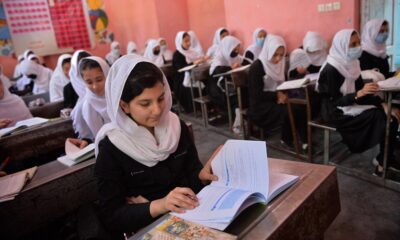
 Latest News4 days ago
Latest News4 days agoUN ‘deeply disappointed’ over ongoing ban on girls’ secondary education
-

 Latest News3 days ago
Latest News3 days agoAfghanistan-Iran-Europe railway corridor activated
-

 Business3 days ago
Business3 days agoAfghanistan ships first consignment to Europe via Khaf-Herat railway


